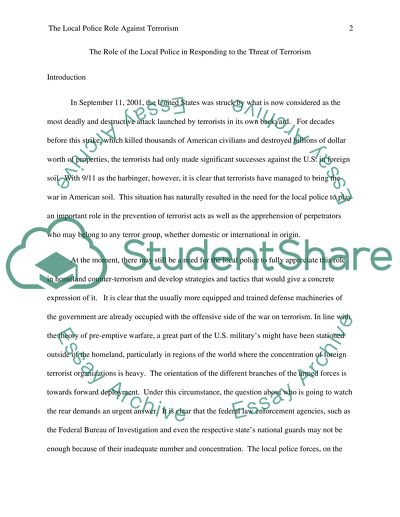Cite this document
(“The role of the local police in preventing and responding to the Term Paper”, n.d.)
Retrieved from https://studentshare.org/law/1399427-the-role-of-the-local-police-in-preventing-and
Retrieved from https://studentshare.org/law/1399427-the-role-of-the-local-police-in-preventing-and
(The Role of the Local Police in Preventing and Responding to the Term Paper)
https://studentshare.org/law/1399427-the-role-of-the-local-police-in-preventing-and.
https://studentshare.org/law/1399427-the-role-of-the-local-police-in-preventing-and.
“The Role of the Local Police in Preventing and Responding to the Term Paper”, n.d. https://studentshare.org/law/1399427-the-role-of-the-local-police-in-preventing-and.


